At the heart of the child protection system are the child-friendly, “one-stop” Assessment Centres, where a child who is in need of care and protection can be seen by a multidisciplinary team of child care professionals, in one location.
The Assessment Centre is staffed by a multidisciplinary team of child care professionals, which would include:
- Assessment Manager
- Team Leads
- Psychologists
- Children’s Services Assistants
- Medical Doctors
- Caregivers
- Security personnel
The purpose is to provide holistic assessment of children in need of care and protection as outlined in Section 22 of the Children’s Authority Act, and or children in need of supervision. The idea of the “one-stop” location seeks to limit the number of interviews and places that a child has to visit to be medically examined, questioned and psychologically assessed, as multiple evaluations can further traumatise the child.
These are safe, supportive and child-friendly ‘one-stop shops’ where children in need of care and protection and/or children in need of supervision receive professional evaluations by a multi-disciplinary team in order to develop guided interventions for the children and their families. The purpose is to assess a child, the impact of harm and to ensure their safety, health and well-being by focusing on safe and suitable placement and interventions for them and their families. This centralised approach can minimise the re-traumatisation of a child who has experienced abuse or neglect, and can assist greatly in their recovery process.
The model seeks to limit the number of interviews and places that a child has to visit to be questioned, psychologically assessed and medically examined, as multiple evaluations can further traumatise the child. All Assessment Centres are in centralised locations, with easy access to public amenities such as health centres, the police and public transportation.
Assessment services are free to all child victims of abuse, neglect or other forms of maltreatment, and their families.
- Multidisciplinary Assessments – Once a case has been investigated and substantiated and there is need for a child and family to be assessed, a referral is made to the Assessment Centre. The assessments comprise of a general medical examination, a clinical interview, a psychological assessment and/or referral for a psychiatric evaluation (if necessary), to ascertain a holistic understanding of a child and family’s functioning, with the view to determining appropriate placement and treatment. All assessment findings are discussed in a Multidisciplinary Case Conference, which results in the development of a Treatment Plan. Each plan is tailored to address the child’s and family’s needs, the most suitable placement for the child and the interventions required for the child’s and family’s rehabilitation.
- Forensic Medical Examinations – These are full general medical examinations, including genital-rectal examinations, which are conducted in a sensitive manner by a specially trained Doctor to gather and document evidence in a forensically sound manner, in collaboration with and in the presence of the Police.
- Forensic Interviews – These are semi-structured, non-leading, legally defensible and developmentally appropriate interviews which are conducted to gather a child’s account of physical and/or sexual abuse, using child-friendly methods, in collaboration with and in the presence of the Police. A one way mirror is used, which allows a multidisciplinary team to observe the interview and they are able to assist the interviewer with questions, while the interview is recorded using audio-visual technology.
- The child and family’s voices are heard.
- The child and family are treated with dignity and respect, in a safe and supportive environment.
- Multiple professionals work together to provide an integrated and holistic service.
- The circumstances and impact of a child’s alleged maltreatment are ascertained and clinical impressions are formulated.
- The most suitable and safe environment for the child is identified.
- An individualised treatment plan, specific to a child and family’s needs, is developed.
- The assessment provides an opportunity for follow up care to be coordinated and targeted.
- Forensic interviews and forensic medical examinations allow for evidence collection which can aid in the identification and prosecution of alleged perpetrators; and enable increased justice.
- Mt. Hope Assessment Centre – Bldg 69, Wendy Fitzwilliam Paediatric Hospital, Mt. Hope
- South Regional Office and Assessment Centre – Manahambre Road, St Madeleine
- Chaguanas Regional assessment Centre- Chaguanas Main Road, St. Thomas Village, Chaguanas
- Sangre Grande Assessment Centre – Oropouche Road, Sangre Grande
- Tobago Regional Assessment Centre- Pascal Village Extension, Lambeau, Tobago
